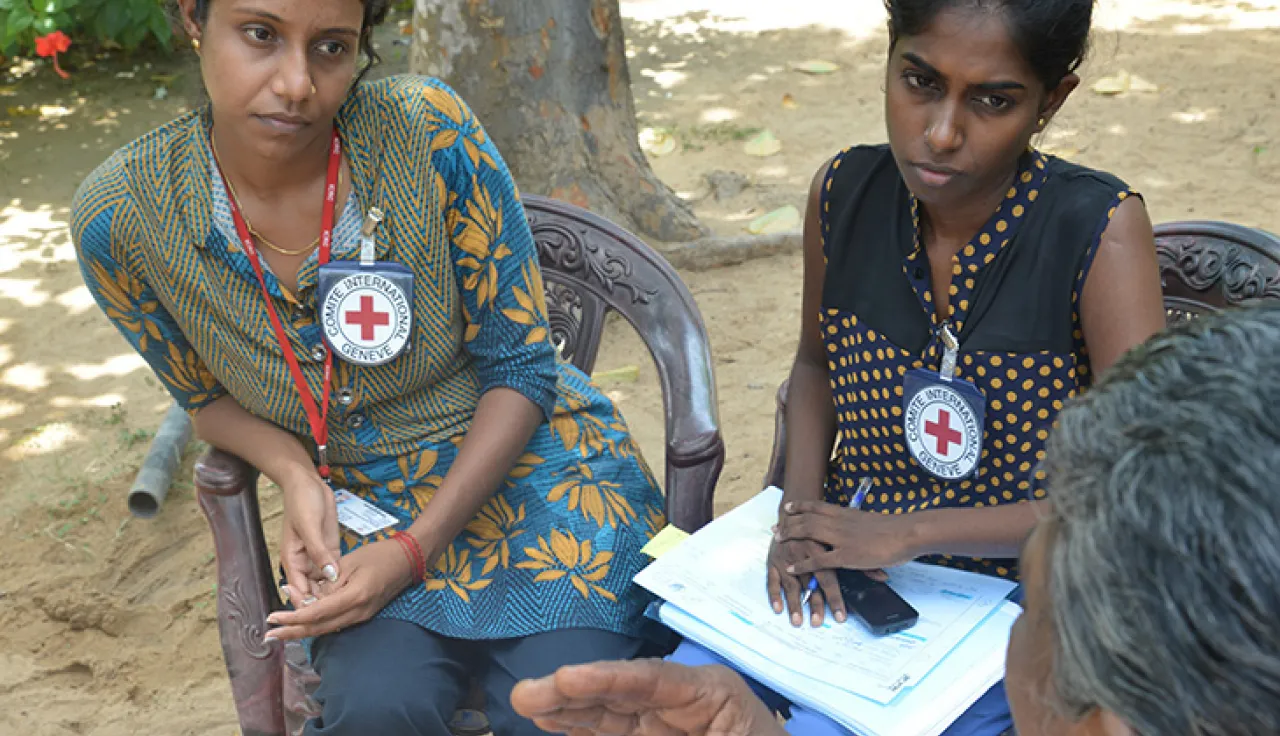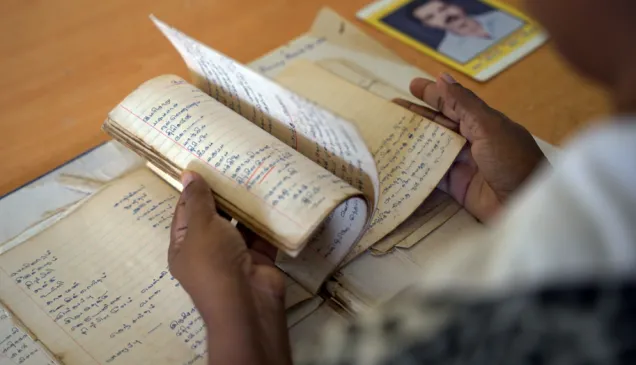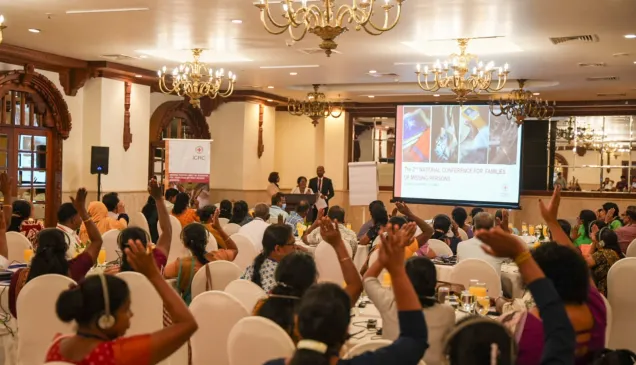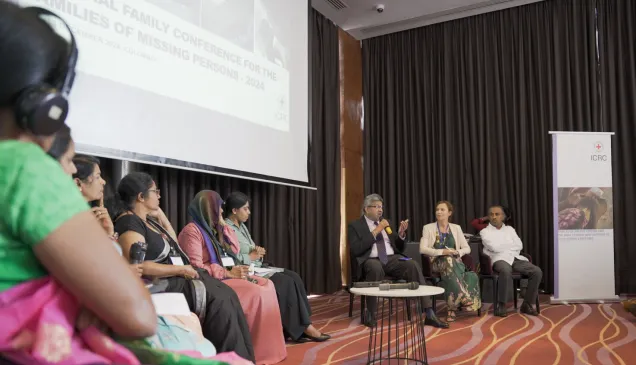Sri Lanka: The tale of a team

In November 2014, a team of eight young field officers embarked on a journey across Sri Lanka.
Their mission was to locate 392 families (out of 16,000) whose loved ones went missing during the country's past conflict, and complete a questionnaire with each family to assess their economic, psychosocial, legal and administrative needs.
The findings, based on this sample, would be compiled in a confidential report for Government authorities to address the needs of such families.
For most of the team, this was their first job – their first foray into humanitarian work and the ICRC.
The mission seemed straightforward. But it quickly became apparent to the team that it was much more complicated.
Listening to the families of the missing
Realising they were dealing with victims of a conflict, they had to learn how to empathize with these families and understand their suffering. They also had to overcome a personal sense of powerlessness.
Thivya, a team member, says, "You feel like you want to help these families to find an immediate solution, but you know that it is a long-term process. The families don't see this; they hope the ICRC is going to find their missing relative."
"We have to tell them that we have no news of their loved one, and having to tell families something like that never gets any easier," reflects Sachini, another team member.
Grasping the 'bigger picture' and contributing in their small way towards (hopefully) giving these families the answer they need inspired the team to keep going.
Eight months later, the team had travelled all over Sri Lanka and had completed the assessments. Locating the families, who were often not at the recorded address but elsewhere due to displacement and relocation following the conflict, was a challenge.
They listened to heart-rending stories, and at times have cried together with the families.
"Seeing how strong they are and how they cope in the face of all they have been through, has humbled and inspired all of us," says Nadiya. The team echo her sentiments.
They all admit to having 'grown up' through this experience.
Looking ahead, Abiramy says, "I want to see the outcome of the report – what we're going to take back to the families."
Read more: on International Day of the Disappeared 2015



